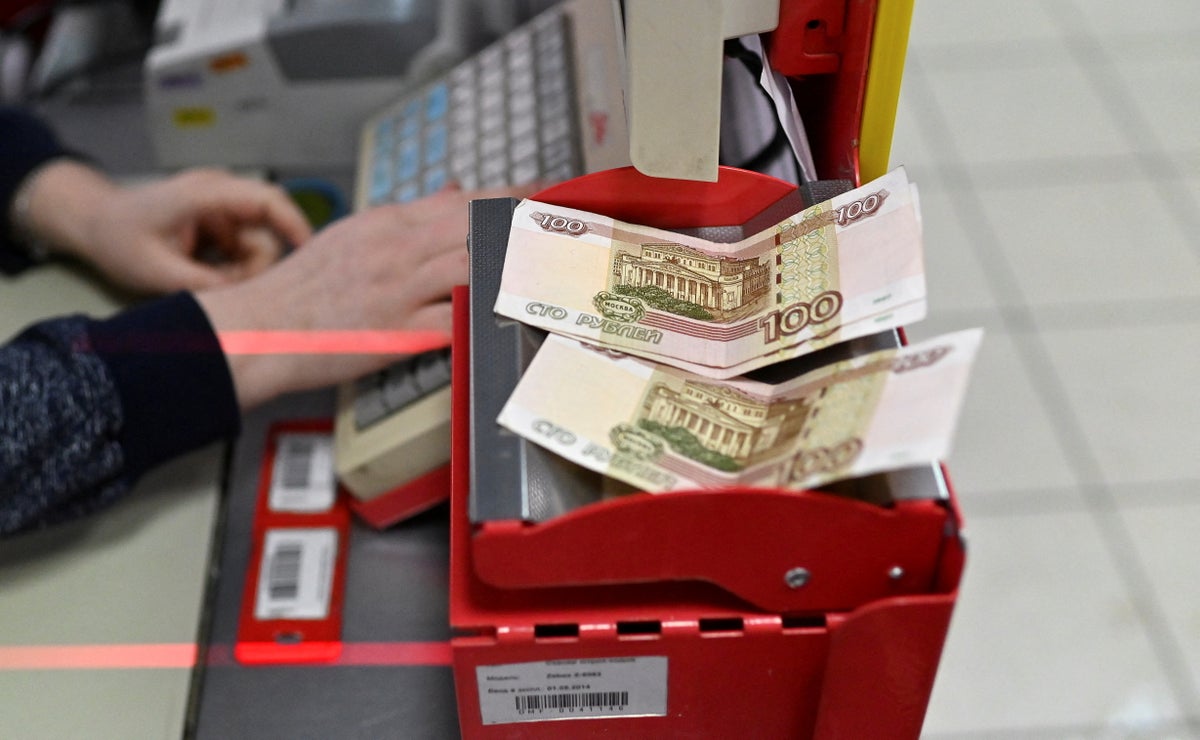
Russia’s central bank is due to hold an unscheduled meeting to dicuss the level of its key interest rate – in the wake of the rouble falling to its lowest value for more than 16 months.
Pressure on the Russian economy is growing as the Kremlin continues pumping vast sums into its invasion of Ukraine. The country has been targeted with sanctions led by Western nations since the invasion began.
Imports are also rising faster than exports sending the rouble past 100 per US dollar. The rouble plummeted as low as 119 per US dollar shortly after President Vladimir Putin launched his invasion in February 2002, but was later stabilised through capital controls and Russia’s lucrative oil and gas exports. The rouble has lost about a quarter of its value against the dollar tha start of the war.
On Monday morning, the central bank said it saw no threat to Russia’s financial stability from the rouble’s fall. But by the afternoon, they had announced that the meeting on Tuesday morning. The central bank hiked rates to 8.5 per cent, having held them steady since September. Ahead of what was due to be its next meeting in September – before the latest announcement – the bank has been signalling that more hikes are needed.
Kremlin officials blamed the central bank and “loose” monetary policy for the fall in the rouble. "The main source of rouble weakening and accelerating inflation is soft monetary policy," Maxim Oreshkin, an economic adviser to Mr Putin, said. "The central bank has all the tools to normalise the situation in the near future and ensure that lending rates are reduced to sustainable levels."
An economic adviser to Putin blames central bank for weakening currency— (Copyright 2023 Sputnik)
“The current exchange rate has deviated significantly from fundamental levels, and its normalisation is expected in the near future," Mr Oreshkin wrote in an op-ed for the state-owned TASS news agency.
"A weak rouble complicates the economy’s structural transformation and negatively affects the population’s real incomes," he added. "It is in the interests of the Russian economy to have a strong rouble."
The Bank of Russia blamed the rouble’s sharp slide this year on Russia’s shrinking balance of trade. The country’s current account surplus was down 85 per cent year-on-year in January-July.
The UK is among a number of Western countries to have imposed sanctions on Russia.
The UK, the EU, US, and other allies, have responded to the invasion with significant coordinated sanctions, targeting Russia’s financial sector, aviation and shipping, strategic sectors of the economy such as defence, aerospace and energy, individuals close to the Putin regime and those facilitating Russia’s invasion of Ukraine, including actors in third countries.







